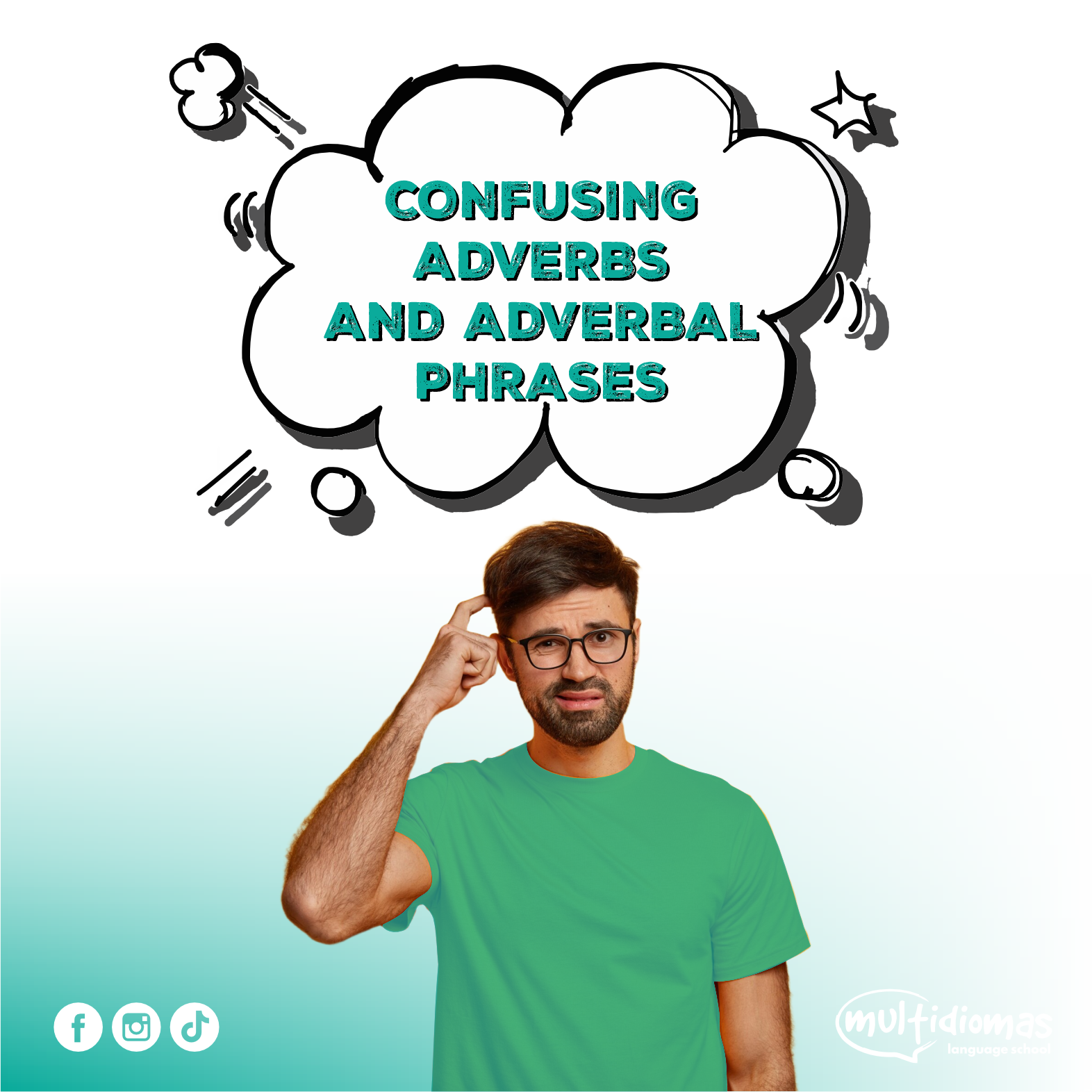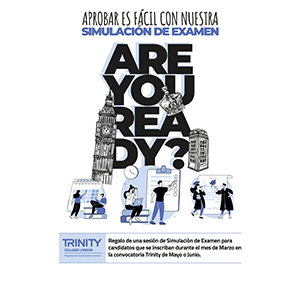
CONFUSING ADVERBS AND ADVERBIAL PHRASES
Cuando estudiamos inglés,a veces, hay cosas que se nos hacen un poco cuesta arriba y nos lían un poco.
Hablando de Adverbios, hay algunos que presentan una especial dificultad, bien porque son palabras muy similares entres ellas o que, como ya hemos visto anteriormente, son ‘False Friends’ que nos hacen confundirnos con su significado real.
En Multidiomas, queremos que este tema no se te atragante y puedas usar los adverbios y frases adverbiales con fluidez, así que te vamos a dejar una lista de los que pueden generar confusión, con su significado y varios ejemplos para que vayas practicando, ¿Qué te parece?
AT THE MOMENT (En este momento, ahora)
- I’m busy at the moment, but we can talk later
- My sister is a doctor and at the moment she’s working in London
- At the moment they’re renting a flat, but they’re hoping to buy one soon
ACTUALLY (Realmente, en realidad)
Hay que tener mucho cuidado con esta palabra, es uno de los ‘False Friends’ que más nos hace confundirnos a los españoles. No significa ACTUALMENTE
- She looks younger than me, but actually she’s two years older
- My last name looks German, but actually, it’s Dutch
ESPECIALLY (Sobre todo, particularmente, especialmente)
- I love most kinds of music, but especially jazz
- All the children enjoyed the fairy tale, especially the girls
SPECIALLY (De un modo especial, expresamente)
Este adverbio se suele usar seguido de un participio. Se distingue del anterior en un ligero matiz, y al ser tan parecido en pronunciación y escritura es fácil confundirse
- My wedding dress was specially made for me by a dressmaker
- My house was specially designed by a famous architect
- Alan’s feet are so big that his shoes are specially made for him
- Peter invited Mary to his party specially, as he knew she always created a great atmosphere.
EVER (Alguna vez)
- Have you ever been to the USA?
EVEN (Incluso, aún)
- I’ve been all over the USA. I’ve even been to Alaska!
- It was so easy, even a child could do it
- I feel even worse than I look
HARD (Duro, difícil)
- He trains very hard, at least three hours a day
- The exam was really hard
- My father worked very hard all his life
HARDLY (Apenas)
- It’s incredibly foggy. I can hardly see anything
- Jim hardly ever visits his parents anymore.
IN THE END (Por último, finalmente, al final)
- I didn’t want to go, but in the end they persuaded me
- He finished his work in the end
AT THE END (Al final de algo: un libro, una calle, una historia….)
Estos dos últimos se parecen mucho, así que pon atención para saber cuando debes utilizar cada uno.
- At the end of a film I always stay and watch the credits roll
- I can’t wait to find out what happens at the end of this book
LATE (Tarde )
- I hate it when people arrive late for meetings
- I need to go. I’m late for my appointment
LATELY (Últimamente, recientemente)
- There have been reports of flooding lately
- I haven’t see Jane lately, have you?
NEAR (Cerca, cerca de)
- Do your parents live near here?
- Excuse me, is there a Cinema near hear?
- Near her feet, she found a coin
NEARLY (Por poco, casi)
- I’ve nearly finished my book. I’m on the last chapter
- I was nearly in an accident this morning?
STILL (Todavía)
- He’s 35, but he still lives with his parents
- He hadn’t eaten breakfast, but he was still not hungry
YET (Ya)
- Have you found a job yet?
Como ves, le hemos dado un buen repaso a este tema. Ahora toca que seas capaz de crear más ejemplos para cada uno de ellos.
Sigue aprendiendo con las mini-lessons que encontrarás en nuestras RR.SS. Estamos en Facebook, Instagram y Twitter. ¡Síguenos!









